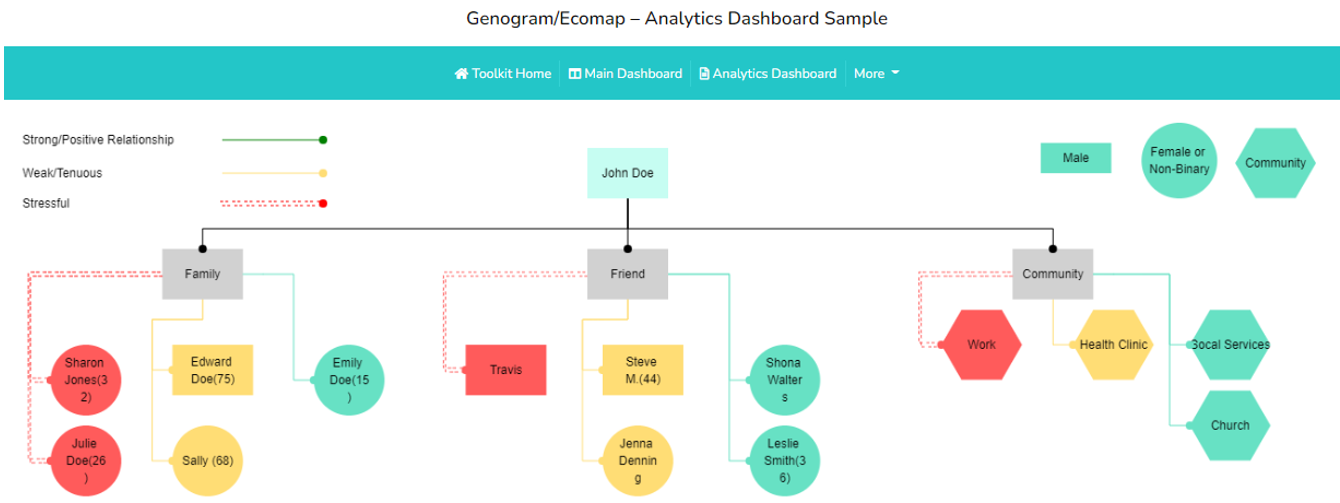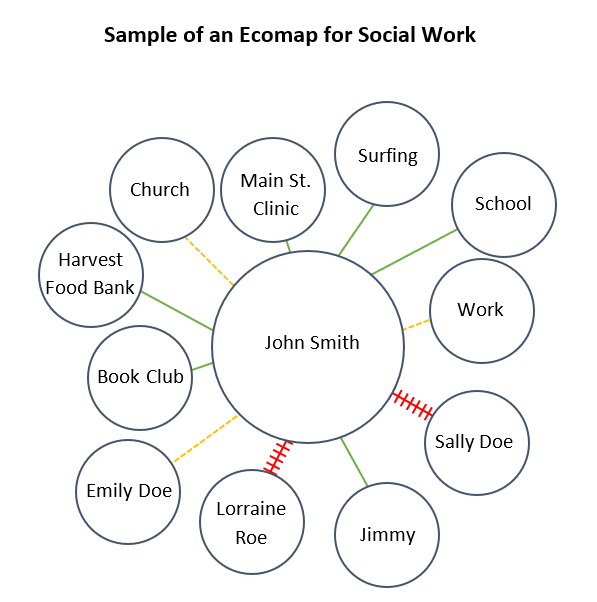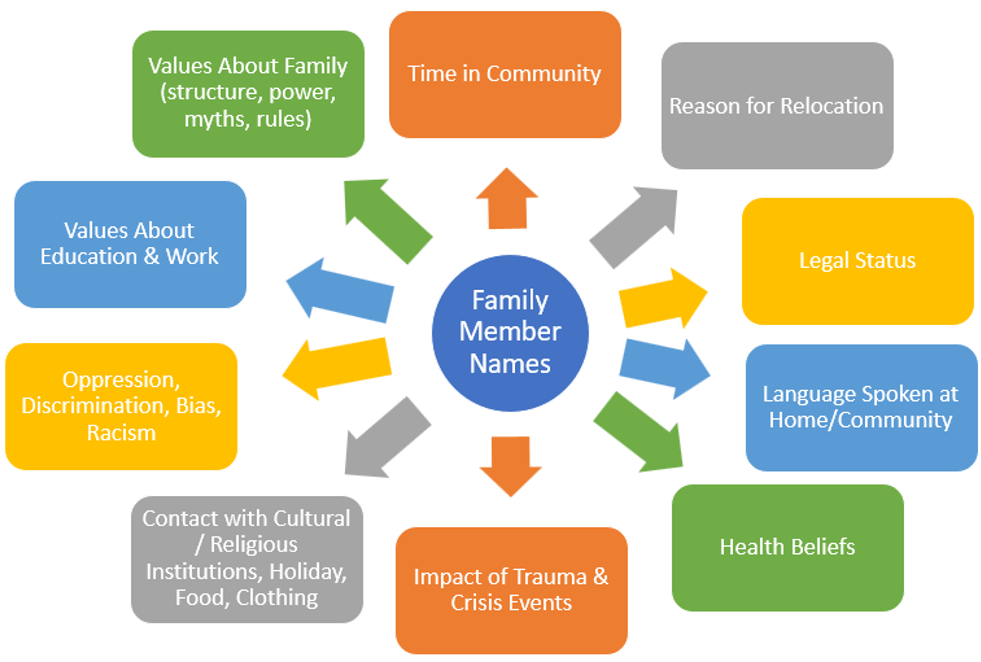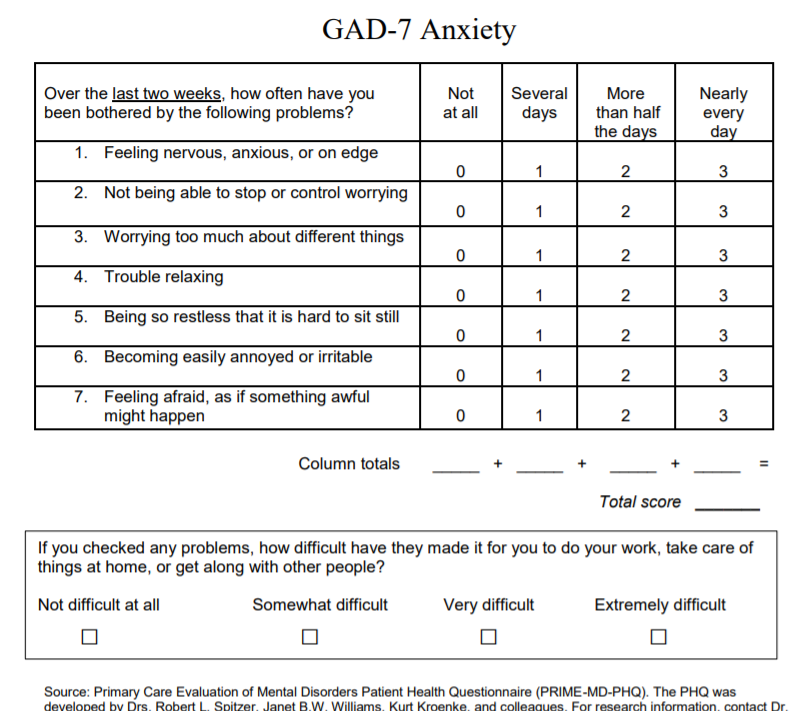

This article has been published for all social workers, from new professionals to those with many years or decades of social work experience, as well as for mental health clinical workers, psychotherapists, and counselors. As social workers, one of the most critical parts of your job is to conduct social work assessments on a regular basis using a social worker toolbox.
However, social worker assessment is an area that a lot of social workers struggle with (both new and experienced professionals), because until now, there has not been a consistent set of social work best practices, streamlined social work analysis templates, step-by-step checklist, or social workers toolbox to help those in the industry. I f you’ve ever wondered, “What is a social worker assessment?” or “What is an assessment in social work from A to Z?” then this guide will help you.
As pioneers of best change management practices, we believe strongly in supporting the social work community and helping them hone their skills in social work. If you have any questions or feedback about this social work assessment guide, please to contact us
Table of Contents –
Keep on scrolling down this page to read each section, or click any link below to go directly to that section. –
This free guide below, which has become the #1 assessment guide for social workers, provides you with best practices for conducting social work assessments.
We provide social work assessment examples of what makes a good social work analysis, and also give you free downloadable “assessment in social work” pdf and PowerPoint templates that you can use for your needs.
You’ll also learn about our All-in-One Client Assessment & Management software to make assessments in social work much easier to do! This social work toolbox contains social work templates, samples, best practices, a “tasks checklist”, social work assessment examples, and tools, and everything you need to increase your success with clients and as a social worker.


What is Social Work? What Does it Really Involve?
Let’s begin by first answering the question, “What is social work?”
Social work is a practice that focuses on helping individuals, families, and communities to meet their basic needs and to function well in society. It involves defined processes and methodologies to enhance the well-being of individuals, and help meet the basic and complex needs of social communities, especially those in our communities who are vulnerable.
The way that the National Association of Social Workers (NASW) answers, what is social work, is by describing the primary mission of social work as, “to enhance human well-being and help meet basic and complex needs of all people, with a particular focus on those who are vulnerable, oppressed, and living in poverty.”
What is social work to the U.S. Bureau of Labor Statistics? This agency defines social work this way, “Social workers help people solve and cope with problems in their everyday lives.” The International Federation of Social Workers (IFSW) has a longer definition to answer, “What is social work?” This definition includes the fact that social work is both a practice-based profession and an academic discipline. It notes that social work “engages people and structures to address life challenges and enhance wellbeing.”
An analysis in social work definitions finds that the common thread is that social work is about caring for others and helping people with a variety of basic survival needs so they can live a better and healthier life.

Contact us if you have any questions or feedback about this end-to-end social worker assessment and management guide or about skills in social work.
What is an Assessment in Social Work? What is the True Goal?
What’s the definition of assessment in social work? An assessment in social work involves a set of steps designed to evaluate someone’s needs in order to match them with the best public support or the best social program services that can help them.
As you can imagine, social worker assessment tools and techniques for evaluating individuals can vary according to the type of situation that is being assessed. A social worker will generally apply a different methodology when evaluating a child for potential educational deficits than they do with someone struggling with substance abuse.
Looking for Social Work Learning Resources?
Sign up for a free trial of Case Management Hub and go to My Library!

However, the goal with each type of social worker assessment is the same, which is to help someone reach their full potential and give them the support they need to work through their situation.
The definition of social work assessment and social workers examples may vary slightly according to the type of assessment being done, there is an initial assessment social work practitioners will do for psychiatric needs, for safety needs, for immediate shelter, for family interventions, and many other situations. Though the situations and evaluation methods may differ, the social work assessment definition will always include trying to help the person with the resources available.

Social Worker Assessment and Intervention
The sample social work case assessment tools and examples presented in this article will guide you – the social worker – in assessing multiple aspects of a person’s situation.
Assessed factors can include habits, family dynamics, social/friend relationships, social-economic attributes, mental and physical health, social norms, employment history, cultural considerations, personal issues, social challenges, and more. Are you ready to improve the effectiveness of your client assessments? Our All-in-One Client Assessment & Case Management Toolkit has everything you need. Sign up today and revolutionize the way you work .
An assessment in social work practice needs to be ready to gather data from a wide variety of areas of the person’s life and immediate needs. The best types of assessment tools in social work will include the ability to capture all that information. Evaluation in social work is a detailed process because there is generally not one single factor that causes a crisis situation in someone’s life. Often, it’s a combination of environmental, cultural, societal, and individual factors.
Each of these factors has to be assessed and connected so a social worker can get a full picture of someone’s potential strengths and challenges. The assessments in social work practice help in identifying the best plan to assist that person to overcome their current situation – resulting in a permanent positive social change.
This section aimed to cover the frequently asked “what is assessment in social work?” question. The sections below involve a deep dive review on the various types of assessment in social work, as well as sample social work case assessments.


Please let us know if you have any questions about the social works example or skills in social work outlined in this guide.
Why is a Social Needs Assessment Truly Important for Social Work?
If you work in any type of social work capacity, then you know the importance of individual needs assessment social work tools. A needs assessment in social work matches the situational needs of the client with the resources that are available.
| Social needs assessments are really important because they help social workers determine the issues preventing their clients from reaching their desired goals. |
There are many types of social service agencies (elder care, psychiatric and medical, child welfare, religious organizations, shelters, etc.), and something they all have in common is the need to conduct several types of social work assessments.
Using available social work assessment tools and the best practices referenced below, you can quickly increase your social work successes and performance.
What Are the True Goals of the Social Work Assessment Process?
The stages of the social work process are designed with a simple goal in mind, which is to help people. Social workers are usually on the front line when someone has a crisis in their lives and needs assistance. They learn many social work skills to help them navigate various situations.
The overarching goals of assessment in social case work include:
Individual goals for social worker assessment examples will be more specific to a person’s immediate situation and needs. For example, for domestic violence victims, the goal is to get them to a safe place and connect them to the resources to help them rebuild their life. For substance abuse victims, the goal may be to guide them through successful rehabilitation and give them the mental techniques they need to change destructive, long-term habits.
Social work assessment and intervention are vital to achieving a positive outcome for a person in need and providing support to help them live a happier life. Next, let’s cover how to perform the most effective assessments for social work programs.
Case Management Software – eLearning Resources – Paperless Assessments


Complete Set of Social Worker Articles and Guides


Do you have any questions or feedback about this assessment social work article, skills in social work, or social worker examples? If so, click here to contact us.
How Do You Conduct the Best Levels of Social Work Assessment?
A social work assessment includes a report that outlines an individual’s situation and immediate and long-term needs. It also includes some type of intervention recommendation designed to help that individual overcome their immediate challenges.
Assessment in social work consists of sitting down with a person (in person or virtual meeting) and asking them a series of questions designed to ascertain a number of factors that will guide any intervention plan. When conducting such types of virtual or in-person sit-down sessions, social workers often use a social worker assessment template that includes pre-determined social work client assessment questions.
The importance the social workers example through assessment can’t be overstated. Without the careful evaluation of information and resources laid out in a needs assessment example social work report, it would be nearly impossible to properly help a person with the right type of resources and guidance.
To effectively carry out this process it’s helpful to use an assessment framework in social work. Using a social work assessment framework can help those new to social work with a set of steps they can follow and a social work intake assessment example.
An assessment framework social work process also helps seasoned social workers ensure consistency for all their social work assessment forms, surveys, and reporting.
A social work assessment template will have several categories that can be used to assess a person’s current state, weaknesses, strengths, and opportunities. Completing as many of these categories as possible will help you create a complete picture of each client or individual being assessed.


Please let us know if you have any questions or feedback about social works example assessments or building social work skills. We’d love to hear from you!
| Social Work Client Questions to Simplify the Assessment Process in Social Work |

Social Work Case Assessment Example | Social Work Portal
Looking for some Assessment Questions? Download the free assessment in social work pdf and PPT documents below to use. These documents include sample social work client assessment questions: Sign up for free trial, then in the sidebar menu, choose “My Free Tools”


Contact us if you have any questions or feedback about the Social Work Assessment Questions or social workers example surveys.
Social Work Red Flags – What Do You Need to Know?
Social Workers are trained to look for specific red flags and areas of potential strengths so they can steer clients away from destructive forces in their life and towards those that are supportive and positive.
Every circumstance is different, and what you assess for one person might differ from what you assess with someone else.
However, some of the common categories of a person’s life that can be gathered and entered into your social worker assessment tool and template include:
Some of the information needed when doing an evaluation in social work can be gathered from government agencies, such as patterns of crisis or from your organization’s database. However, most of the information will come from the social assessment interview that you conduct directly with the individual.
During meetings, you should use one or more assessment in social work method and tool, depending upon the client type you are working with. This will guide the process and zero in on the information needed to create a successful path forward for the client. See below for the “assessment in social work” tools and methods used by a lot of social workers.
Don’t miss the section in this guide that addresses the frequently asked “what is assessment in social work?” question. Contact us if you have a social work client assessment example that you would like to see listed on this page.


Questions about this “What is social work?” article and guide? Contact the Social Work Portal Team.
What Is a Social Work Assessment? | Example of Social Work Assessment Types
As mentioned above, the social work process assessment can differ according to the agency. There is a wide range of various social agencies that help people in varying circumstances. An assessment example social work plan for someone with dementia being assisted by an elder care facility will be unique to the needs of seniors and their families. It may include plans for long-term care and help to get basic needs taken care of (shopping, prescription refills, companionship, etc.)
While the assessment examples social work process for a domestic violence shelter, will be focused on the urgent short-term needs of its clients, such as food, shelter, and safety. An assessment social work example includes the same basic goal of assessing needs and matching those with available resources, no matter the agency.
Here are some of the many different types of social workers assessment examples:

Types of assessment in social work
Popular Articles:

Questions about this “What is social work?” article and guide? Contact the Social Work Portal Team.
What Tools and Assessments Do Most Social Workers Use the Most?
To accommodate the many types of social work assessments, social workers use a variety of tools when interviewing clients and while putting together the social work assessment report.
Some of these tools for assessment in social case work will include mapping out an individual’s relationships with family and friends. Others include social work questions and answers that you can ask in a variety of different situations.
Are you ready to boost your assessment effectiveness with built-in templates & screeners? Learn more about our social worker’s toolbox and assessment templates.
(1) Genogram & Ecomap | Family Personal & Social Relationships
Genogram and Ecomap social work tools help clear up social work assessment questions related to the family and community dynamics of an individual.
These social worker assessment tools originated from Dr. Ann Hartman, a leading social work best practices practitioner, scholar, and educator who has operated in the field for more than 40 years. She received her DSW from Columbia University and was a dean and professor at the Smith School for Social Work.
Social workers use the Genogram process to map out the immediate family relationships of an individual. The social work Ecomap is then used to expand farther from the family to friends, groups, community services, etc. that impact the individual’s life.


Genograms and Ecomaps are used in the early stages of the social work process to get a full picture of the relationships in an individual’s life.
Different types of lines between the connections are used to designate a relationship that is:
Shapes are also often typically used to designate gender. Males are shown as a square, and females as a circle.
(2) Self-Assessment Templates | Individual Insight
A self-assessment client template is a social work assessment tool used by a lot of social workers at various stages of the social work process. It is provided to the client for them to complete and provides you with insights into an individual’s strengths and challenge areas from that individual’s perspective.
To put things in perspective, the type of social worker assessment examples and answers that the person fills into their self-assessment social work template includes:
A self-assessed client social work template is often used by social workers as it quickly helps their clients put their challenges into perspective – this is achieved because the clients have to think through and categorize several areas of their life versus the social worker doing it for them. And, when compared to past self-assessments, it can show them their progress, and how they’ve grown.
When you provide a self-assessment social work template to your clients, encourage them to enter as many details as possible, as this enables you to better determine the best programs and plans for them.


(3) Culturagrams | Examines 10 Cultural Parameters
This is one of the assessment tools in social work that is used only in certain circumstances. A culturagram is used by social workers to better understand families that come from different countries, regions, or cultural backgrounds. In general, the Culturagram is used to assess immigrant families or refugees to understand the cultural aspects of their lives and situations.
The culturagram was first introduced by Fordham University professor, Dr. Elaine Congress. It was first developed in 1994 and then revised in 2000 and again in 2009, according to Wikipedia.
It includes sample social work assessment questions that have to do with 10 cultural parameters. These include:
| Assessment Tools for Social Work Practitioners: Culturagram |

Social work assessments: Culturagram PPT screenshot from our free social worker template

(4) Generalized Anxiety Disorder: Gad-7 | Anxiety Assessment
Another sample social work case assessment tool that is often used – as needed – is the GAD-7.
This tool is designed as a rapid screening of a clinically significant anxiety disorder, such as General Anxiety Disorder (GAD), Panic Disorder (PD), Specific Phobia (SP), or Posttraumatic Stress Disorder (PTSD).

The GAD-7 consists of a list of seven questions related to anxiety. During this evaluation in social work, the individual will answer on a scale of frequency how often a particular anxiety-related event or feeling occurs. A score of 10 or greater signifies a strong case of GAD. From a scaling perspective, points of 5, 10, and 15 are often associated with mild, moderate, and severe levels of anxiety on the GAD-7 scale, which is similar to levels of depression on the Patient Health Questionnaire (PHQ)-9.
Sample social work case assessment template – GAD-7
Note: Content on Social Works socialworkportal.com website is copyrighted. Social Work Portal Disclaimer: Social Work Portal is not a social work agency and we do not refer social workers. This web site is provided for educational and informational purposes only and does not constitute providing medical advice or professional services. The information provided should not be used for diagnosing or treating a health problem or disease, and those seeking personal medical advice should consult with . Read our full disclaimer here: Social Work Portal Disclaimer.
(5) Systems | Situation, Safety, Survival Needs, Supports, Short-Term/Crisis
The Systems method is an effective social work assessment template used by many social workers because it guides a social worker through the key areas of a client’s life which they need to evaluate for their assessment.
This type of social worker assessment and intervention uses five different “S” words that represent important components of an individual’s life. Asking questions in these areas can help a social worker put together an intervention plan to help the client through their more urgent problems.
Initial assessment social work examples from the Systems method include:
The social work feedback examples above are especially helpful when categorizing needs for a care plan. One social work agency might have multiple care plans, and they choose one of those depending upon the answers to the social work assessment questions for clients.
Case Management Software with Popular Assessment Templates Built In


This section aims to cover the often asked “what makes a good social work assessment” question. We hope we were able to answer that question for you. When looking at social work assessment examples and samples, you’re bound to run across different assessment methods that social workers use. These are designed to help social workers make connections between the several variables in a person’s life.
The sample social work case assessment and intervention tools referenced above also assist a social worker in their approach with a client. For example, one popular approach is called a Strength-Based Approach and it focuses on a person’s strengths rather than their weaknesses.
The approaches used in the social work tools and techniques outlined in this guide are a combination of psychology-based techniques and organizational tools to connect multiple factors. A social worker assessment template helps put all those moving pieces into a comprehensive assessment and game plan for support.


Do you have additional answers to the often asked “what makes a good social work assessment” question? Do you have feedback on the best assessment tools for social workers? Contact the Social Work Team to let us know.
Assessment in Social Work Process | Step-by-Step
The various social work tools and techniques used during the assessment are just one step in the social work process. When assisting a client and putting them on a path toward problem resolution, multiple steps are taken to execute a plan based upon the social work assessment.
These social work steps are listed and reviewed below.
1. Interview & Engagement
The initial interaction with a client is when the assessment in social work begins. This initial engagement may be when a client first walks in for help or when you initiate a meeting with the individual, and it can last 15 minutes or longer, depending upon the time available.
If there is time, the social worker may ask initial interview questions to understand the person’s situation or might give them a self-assessment questionnaire to bring back to a subsequent meeting.
After the initial interaction, the social worker will sometimes schedule a follow-up meeting where they can conduct a more thorough assessment using social work assessment tools, if needed.
When the client returns for their meeting, this stage is where the bulk of the data collection happens. A social worker may use one or more of the assessment tools in social work to gather details about the individual, their situation, their needs, supports, and so on.
Information that social work assessments cover includes everything from the client’s current health and well-being to any immediate needs they have to their general mental state.
2. Research
The next step when answering, “What is a social work assessment?” is to do research on the client. It’s logical to begin by looking for any history of the individual in your organization’s database or files.
As the assessment in social work process continues, you may wish to widen your research to other government data sources or local non-profit organizations.
It can be helpful to research any other agency databases you have access to for additional data on the individual and their social assistance or crisis history that will further inform your assessment process in social work care planning.
If during your interview, the individual mentions any other help agencies or non-profit groups they’ve either received help from or been turned away from, it can be helpful to reach out. Any information you receive from those agencies can inform your social work assessments.
3. Social Work Assessment
The social work assessment questions that are asked during the initial or follow-up interviews are used for the social work assessment report. This report includes notes from the social worker on the individual’s situation, resources identified that can help, and an intervention and support plan to help the client.
The social work assessment process will lead to the care plan. This involves reviewing all interview information and research and distilling that into a strategy to help the client, and documenting your case assessment social work notes using a case management tool.
Looking for a great all-in-one social work and case management tool? Sign up for Case Management Hub today and streamline your workflow.
4. Create Social Work Plan & Goals
After writing the case assessment social work report, the care plan needs to be created in detail.
The social worker will often use a social work assessment template for data input so they can chart correlations that can help in creating a comprehensive plan for the client. They will look for strengths and positive forces in the client’s life that can be drivers for change.
Goals and milestones to be achieved will be included in the social work assessments plan. These are designed to show whether or not the intervention is going in the right direction and the change will be sustained.
A social work assessment example for someone fleeing a bad domestic situation may include a goal of opening a new bank account in their name. Another might include obtaining affordable housing through a community resource.
The intervention or care plan is the path forward to a better life for the impacted client and will be dependent upon the needs of that individual and guided by the social work assessment and intervention identified.
5. Social Work Plan Implementation & Monitoring
Once the social work assessments care plan and goals are developed with the help of social work assessment tools, the client will be presented with the plan. The social worker will attempt to get them on board with the intervention and game plan.
Monitoring is important during the implementation to ensure that the plan is going according to design and that any necessary adjustments are made. The goals serve as markers that someone is going in the right direction.
During the monitoring process, other assessment tools in social work can be brought in to help gauge the individual’s progress and keep them on the right track.
An assessment example social work professionals will use to chart progress for a client is a genogram and ecomap. This type of combined example of assessment in social work can show how relationships are moving from stressful or tenuous to more positive over time.
An assessment social work example might also be a personal SWOT analysis. The SWOT analysis looks at strengths, weaknesses, opportunities, and threats. They’re often done for businesses but can also be very helpful when incorporated on an individual basis into an assessment framework in social work follow-up and monitoring.

Social Work Assessment Tools
6. Final Review | Case Assessment Social Work
Once the intervention or care plan is complete, there is a final evaluation in social work done to assess the client’s progress and whether they have reached the end of the plan successfully.
Many assessment examples social work reports will include the end goal for the client’s care plan and alternate referrals or follow-up steps that could be made if the client doesn’t successfully complete the plan.
If successful, the ongoing intervention activities can be terminated as the person is now able to carry on without the additional assistance.
If the final evaluation shows that the goals of the intervention and care plan have not been met, then another social work assessment example may need to be done to determine if there is a viable path forward to assist the client.
Do you have feedback on the best templates and assessment tools for social workers? Contact the Social Work Team to let us know.
7. Social Work Care Plan Termination
When looking at examples of social work assessments, there will sometimes be a date noted when the care plan will end. Or this may be left open and dependent upon the progress made by the client.
Conduct an exit interview for the individual to transition the person to self-sufficiency or another care agency.
During your exit interview, you will review their progress during your time working together on their care plan and lay the groundwork for any potential interactions in the future.
For example, you would want to let the individual know they could reach out to your organization should help be needed again. You may also set up a schedule for ongoing follow-up visits to check on their welfare.
Client & Case Management Software

What is a social worker assessment for those follow-ups?
Follow-up social worker assessments would mainly consist of noting progress, any new issues the client is facing, and making recommendations either for continued follow-up, intervention using the social work framework for assessment again, or possibly to end the follow-ups if things are going well.
During the exit interview, give individual time to get all their questions answered, as this is a time when you may be “taking off the training wheels” so the individual may be anxious and needs to know where they can reach out for support if needed.
If you are transitioning the individual to another agency to continue their care, you’ll be meeting with the receiving representative(s) and sharing pertinent information to help them continue caring for the individual.
8. Social Worker Follow-up
Ongoing “touch base” contact for follow-up is a good practice if possible. In this way, the social worker proactively checks to ensure the positive changes brought about after the assessment in social work are still in place and that the individual has not slid back into a negative situation.
If any issues are found during follow-up, then another assessment using social work tools can be done, and the data from the prior assessment will be included.


Do you know of a social work assessment example that you would like to see listed in this guide? Contact us to let us know. On your message, you can use this subject line: “social work assessment example.” Or do you have feedback on best assessment tools social work practitioners need to be aware off? If so, please let us know.
Social Work Assessment Questions
The social work assessment questions used for a particular client will depend upon the person’s age, situation, and type of evaluation being done.
If someone has a health-related issue, then questions and the assessment framework social work tools used will revolve around health and well-being subjects. If the individual requires basic needs assistance (food, shelter), then the questions will differ and be related to those urgent necessities.
The assessment tools social work professionals use include many different types of questionnaires. This helps ensure they’ll be ready with the right social work survey questions examples for any situation.
Open-Ended vs Closed-Ended Questions
When doing a social work process assessment, you want to gather as much information from the subject as possible. How you phrase social work assessment questions is important because if they’re worded the right way, they invite a fuller answer than just “yes” or “no.”
This is why most social work tools recommend using open-ended questions, which invite more feedback.
A close-ended question is one that you can answer with a yes or no, whereas an open-ended question requires more elaboration to answer.
Social Work Assessment Example Questions:
We’ve categorized potential questions to use with social work assessment tools based upon the five key categories of the System model, which also includes strength-based questions.
Don’t hesitate to contact us if you would like to learn more about the assessment tools social work professionals use. Also, contact the Social Work Portal team if you have questions or feedback about the social work assessment examples listed in this guide.
Downloadable Templates – Assessment Questions
You can access a PPT and PDF copies of these social assessment example questions to use for an assessment in social work by clicking on the below link. These documents include multiple sample social work client assessment questions.
Free Social Work Assessment Questions


Free Downloadable Social Work Assessment Questions
Sign up for a free trial, then go to “My Free Tools” in the menu.
Do you have a social work client assessment example that you would like to see included in this guide that other social workers can learn from? If so, contact us to let us know. Also, let us know if you have sample social work client assessment questions that can be included in this guide for other social workers to leverage.


Do you have your own example of social worker assessment questions that can help other social workers that you would like us to include? Contact us to let us know.
Conclusion | #1 Guide to Assessment Tools in Social Work
Most of the social work assessment tools used for evaluating clients are based upon industry practices for approaches, questions, and mapping of the social environment around an individual.
It’s vital to learn the positive and negative forces that impact a person’s crisis situation and to explore strengths along with challenges.
Some assessment tools in social work can be used for many different types of clients, such as the self-assessment questionnaire. While other tools are distinct to a specific situation, such as the GAD-7 for anxiety assessment.
Social work assessment and intervention can be as unique as each individual, but they all start from a baseline of best practices and experience that social workers and their social work tools are designed to provide. The social work client assessment example(s) and samples provided in this guide are included to help lead you through your social work path. To provide more social work client assessment examples, feel free to contact us.
Get an Assessment in Social Work PPT – Free Download & Assessment in Social Work PDF – Free Download by clicking below.



Do you have questions about this social work documentation guide or any social worker examples we’ve provided? Contact us.
Social Work Assessment Guide FAQ
A social work assessment is a report that outlines an individual’s situation and immediate and long-term needs. It also includes some type of intervention recommendation designed to help that individual overcome their immediate challenges.
Assessment in social work consists of sitting down with a person and asking them a series of questions designed to identify a number of factors that will guide any intervention plan.
The approaches used in social work tools and techniques are a combination of psychology-based techniques and organizational tools to connect multiple factors together. A social work assessment template helps put all those moving pieces into a comprehensive assessment and game plan for support.
Social work assessment tools include:
• Genogram & Ecomap
• Self-Assessment Template
• Culturagrams
• Generalized Anxiety Disorder: Gad-7
• Systems (Situation, Safety, Survival Needs, Supports, Short-Term Work)
There are several important skills that a social worker needs to have. These include a combination of formal academic training and psychological and emotional skills.
Typical social work skills include:
• Empathy
• Organizational skills
• Decision-making ability
• Critical thinking
• Excellent communication
• Ability to set boundaries
• Active listening
• Time management
The stages of the social work process are designed with a simple goal in mind, which is to help people. Social workers are usually on the front line when someone is in a crisis in their life and needs assistance.
The overarching goals of social work include:
• Helping people achieve the best possible outcome for personal and social well-being
• Working towards social justice for underserved populations
• Identifying the personal tools and external resources an individual needs to live a better life
Note: Content on Social Works socialworkportal.com website is copyrighted. Social Work Portal Disclaimer: Social Work Portal is not a social work agency and we do not refer social workers. This web site is provided for educational and informational purposes only and does not constitute providing medical advice or professional services. The information provided should not be used for diagnosing or treating a health problem or disease, and those seeking personal medical advice should consult with . Read our full disclaimer here: Social Work Portal Disclaimer.